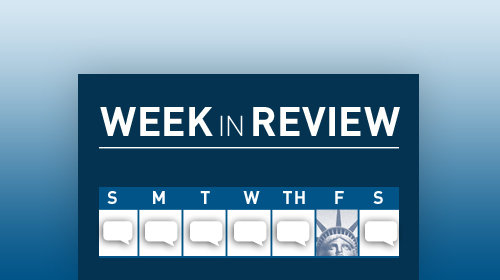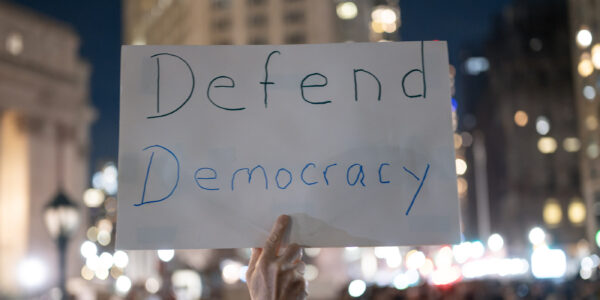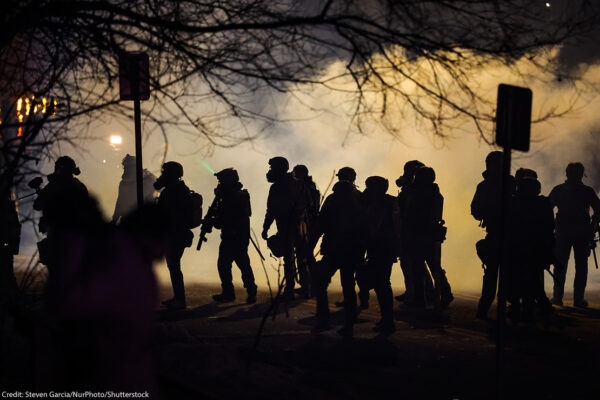
The state police in which state used license plate readers to record plates of vehicles attending political rallies?
True or false: police body cameras have the potential to serve as an excellent oversight mechanism to prevent police abuses, but also a very real potential to invade privacy.
How many civil liberties organizations from around the world, including the ACLU, contributed to a report released this week on the right to dissent?
Which government agency violated the First Amendment by refusing to allow an employee to publish a manuscript about “Operation Fast and Furious”?
Why is the gay rights movement so focused on marriage?
Virginia State Police Used License Plate Readers at Political Rallies, Built Huge Database
From 2010 until last spring, the Virginia State Police (VSP) maintained a massive database of license plates that allowed them to pinpoint the locations of millions of cars on particular dates and times. Even more disturbing, the agency used automatic license plate readers (ALPRs) to collect information about political activities of law-abiding people. The VSP recorded the license plates of vehicles attending President Obama’s 2009 inauguration, as well as campaign rallies for Obama and vice presidential candidate Sarah Palin. (Documentation of this program, disclosed in response to an ACLU of Virginia public records request, can be found here.) These practices starkly illustrate the need for tight controls on government use of technology for surveillance purposes.
Accountability vs. Privacy: The ACLU’s Recommendations on Police Body Cameras
This week we released our policy recommendations on police “body cameras”(also called “on-officer recording systems” or “cop cams”), small cameras that clip on to an officer’s uniform and record audio and video of the officer’s interactions with the public.
The Global Suppression of Protest
This week the International Network of Civil Liberties Organizations released a report about the crackdown on peaceful protests in democracies around the world – the tactics include excessive (sometimes deadly) police force and the criminalization of dissent. The study, "Take Back the Streets" details cases of suppression in the U.S., U.K., Canada, Israel, Egypt, Argentina, South Africa, Kenya, and Hungary.
The Ministry of Alcohol, Tobacco, Firearms, and Truth
The frenzy over "Operation Fast and Furious" has been hard to avoid. It's been the subject of a massive DOJ report, Congressional hearings, contempt votes, subpoena fights in federal court, and relentless media scrutiny. But if there's one telling the Bureau of Alcohol, Tobacco, Firearms, and Explosives (ATF) would love to rectify, it's the "thoughtcrime" account of Agent John Dodson, one of the ATF insiders who helped bring the operation to public light.
Why Are You Folks Spending So Much Time On Marriage?
Why the gay rights movement is so focused on marriage? It's a good question. Part of the answer is that our society has made marriage the gateway to many protections and obligations – from health care to retirement protections to green cards – and committed same-sex couples are harmed in serious ways when they are excluded from marriage and the protections and social status that comes with it.
But an even bigger reason to focus on marriage is the immense cultural power of the institution – tapping into that cultural power can help both dismantle anti-gay stereotypes and make progress on the full range of gay rights issues. Here's why.
Learn more about your civil liberty issues: Sign up for breaking news alerts, follow us on Twitter, and like us on Facebook.


